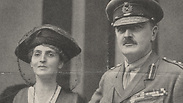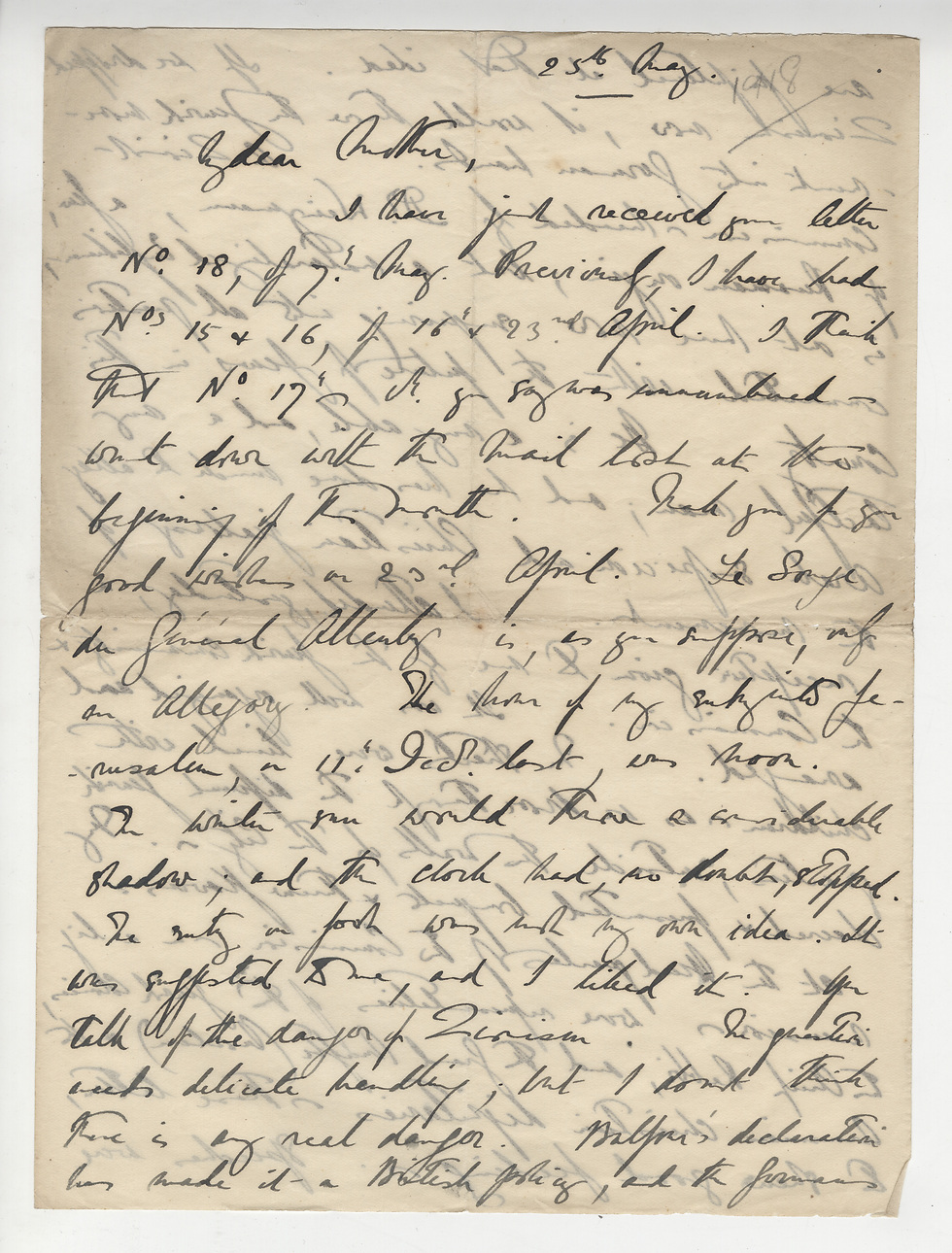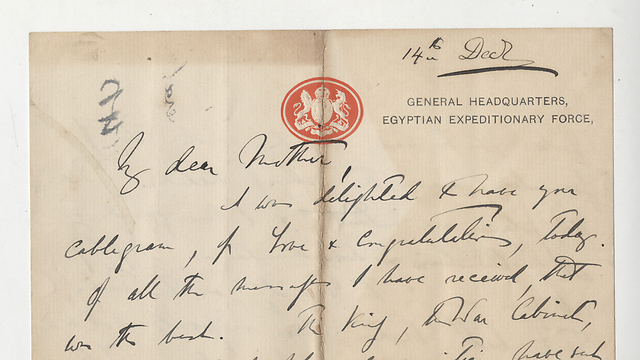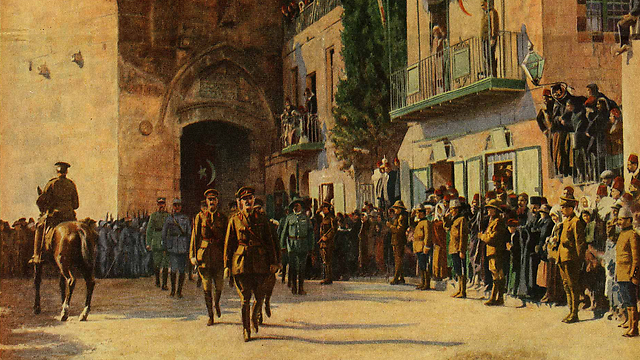
General Allenby and his wife
Exhibition to display trove of General Allenby's private letters
Recently discovered letters, written to his mother from the front in Palestine during WWI, to be displayed Tower of David Museum provide an insight some of his views on Zionism; 'Weizmann has done much to allay Arab suspicions & Christian jealousy.'
A century after the occupation of Jerusalem by the British army, a new exhibition will display an archive of letters written by the British military commander Edmund Allenby from the front on Ottoman-ruled the territory of Palestine during World War I.
Allenby, who commanded the occupation of Palestine, wrote numerous letters to his 88-year-old mother, updating her on his military adventures and sharing with her his experiences, and thoughts, including those relating to Zionism and its political significance.
“You talk of the danger of Zionism. The matter needs delicate handling, but I don’t think there is any real danger. Balfour’s declaration has made it a British policy, and the Germans are frightened of that idea. If we dropped Zionism now, it would throw the Jewish movement into German hands,” the general wrote in a letter dated May 25, 1918.
Allenby also described Dr. Chaim Weizmann, who would later become Israel’s first president, as a “very able, and a very tactful man, and he has done much to allay Arab suspicions & Christian jealousy of the movement.”
Moreover, he recalled the jubilant crowds in the Jewish quarters that greeted him at a reception.
“The streets were lined with children & as we drove through the different Jewish quarters, outside the walls of the City, they cheered and presented bouquets and threw flowers,” he told his mother, noting that he had been presented with a Torah, “a beautiful and valuable piece of work.”
The hidden and dusty letters were discovered by Lady Sara Allenby, the widow of the general’s nephew, during a renovation of the family home.
They will be displayed for the first time to the public in the Tower of David Museum of the History of Jerusalem in the Old City.
“Allenby became a symbolic character,” said the exhibition’s curator Nirit Shalev-Khalifa.
“He was cognisant of his role in history. That’s why he employed a company in London that collected newspaper clippings related to him,” she said about the general, who has a main street in central Tel Aviv named after him for his contribution to the Zionist movement.
“The letters he wrote to his wife were written in a stately and restrained tone. That’s also how he was even when he told her about the death of their son Henry,” she noted.
“But in his letters to his mother, we discovered another, more personal side, more religious, of Christian excited to arrive in the Land of Israel.”
The religious awareness was illustrated by his writing about his arrival to the biblical city of Ashdod.
“I went there the other day, but there was no trace of the Temple of Dagon, or of any of the old city. The town is a native mud village, with here and there a remnant of stone or marble from some old Crusaders’ castle or church. In most of the villages, especially if on high ground, there are remains of the Crusaders’ buildings,” Allenby wrote.
Recounting the events of his army’s occupation of Jerusalem, Allenby told his mother in a letter dated November 20, 1917 he was making efforts to avoid inflicting any damage on the Old City and the holy sites.
“My mounted troops are well North of Jaffa, and they are N.W. and nearly North of Jerusalem. I am trying to surround the troops holding Jerusalem, as I don’t want to have a fight close to the Holy City. If I damaged the Holy Places, I should have all the world down on me! Jerusalem is just as sacred to the Moslems as it is to the Jews and Christians…”













